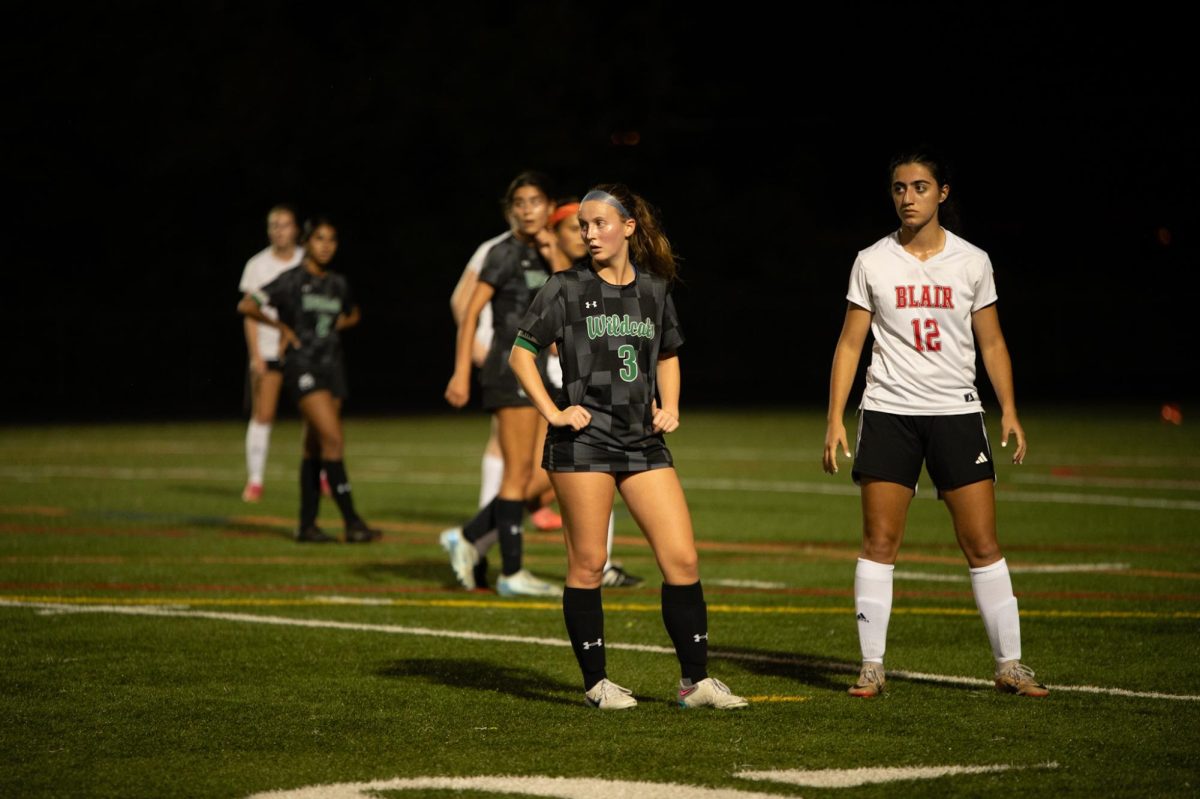High school survival guide: 5 tips for freshmen

Photo Courtesy of Flickr/ Aaron John Tabangay
Throughout high school, students are given advice on everything from how to choose their classes for the next school year to how to navigate the college search process.
Jan 27, 2015
Students at WJ often hear teachers, classmates, guidance counselors and family members offering advice on topics ranging from how to survive the college search process to how to make the most of the high school experience. As a junior thinking back to her freshman year, I sat down and brainstormed five tidbits to offer freshmen who are trying to figure out how to navigate through high school.
1. If they plan on attending college, start looking at schools sooner rather than later.
I know that it may seem ridiculous to be looking at colleges when high school has only just begun, but starting the college search process early will help decrease the stress of junior and senior year. Students don’t have to decide for sure what they want to study just yet, but they should start trying to figure out some of the criteria that they are looking for in a school. Do they want to go to college in a major metropolis, as opposed to one that is in a more rural area or in a small town? Would they like to go to a small college, a large university, or somewhere in between? Would they prefer a liberal arts or a STEM school? Are they even looking at colleges in the U.S., or are they hoping to go abroad for college? How far away from home do they want to be? Again, the list of colleges that they want to apply to doesn’t have to be set in stone, but starting to look at their options now will help later on in narrowing down their list of schools.
2. Make sure they have a balanced schedule for next year.
Every year, usually in January and February, all students are required to sign up for the classes they will take next the following year. Within the next few weeks, many students will probably hear their friends telling them all about their crazy classes and how they plan to take even harder classes next year. Students should let their friends choose their own classes, and not allow their friends’ decisions to influence their own choices. I truly believe that if students take a slate of classes that are reasonably balanced- meaning that they may have a couple honors and/or AP classes, but also take non-academic classes– they are better off than if they take seven AP classes and never have a break in the day. In my opinion, students should try to take at least one or two non-academic classes that they think they might enjoy, such as art or physical education. Students can challenge themselves, but should be careful to not push themselves so hard that they do not perform well in the classes they choose.
3. Try to relax and not stress out.
A little bit of stress can be a good thing for students while they are taking exams, but not if they allow their stress to careen out of control. It is next to impossible to completely avoid stress and have a life that is entirely stress-free, but it is possible for students to manage stress. And no, that does not mean they shouldn’t do their homework and they shouldn’t study for the test(s) that they have the next day (even if it is supposed to snow overnight). It means that they should take breaks while working and spend some time r-e-l-a-x-i-n-g. Whether that means playing their favorite video games, reading a book, exercising, or hanging out with friends, they should make sure that they carve some time out of their busy schedules to relax. This will help them manage their stress, which in turn will help them in school.
4. Focus on doing well in school.
This may sound cliche, but students should always try to do their best. For some students, that means getting straight A’s on every report card. For others, that may mean earning a few A’s, a few B’s, and maybe a C or two. I am sure that some students’ parents probably expect them to get straight A’s and never get C’s. I guarantee that parents do not tell their kids this to “freak them out” and convince them to pull all-nighters to study material that they will learn in class anyway a month later. The reason some parents may require certain grades from their kids? They are thinking about the future, and they want their kids to perform as well as possible academically so that they have as many career options as possible to choose from. These just want the best for their kids. If students feel that their parents are putting extreme and unnecessary pressure on them, they can also try sitting down and talking to them about how they feel. In the meantime, students should focus on getting the best grades they can in school- because let’s face it: grades matter, or teachers probably wouldn’t give them out at all.
5. Do what is best for themselves, not what is best for their BFFs.
Oftentimes, students can easily get caught up in doing what everyone else is doing. Why? Because they want to fit in. However, when it comes to high school, it is infinitely better for students to focus on doing what is best for themselves than to focus on doing the same things that their BFF is doing merely because they want to be like them or because they are too afraid to be different. I’m not saying that students should ignore everyone around them and drop all of their friends cold, but they shouldn’t let their friends run their lives either. For example, a student’s group of friends may want to go to Georgetown Square one day to buy lunch, but that student may need to study for a quiz they have that day. The student’s friends may pressure them to not study and instead come hang out with them and have fun, but that is the student’s decision to make. At some point in their high school careers, every student must decide what their priorities will generally be. Will they prioritize their social life over their classes, or will it be the reverse? Whatever they decide, each student has control over their own actions and decisions. Students should never let someone else take the reins for them just because they consider the other person to be a friend.
High school may not be rocket science (or at least not most of the time), but it has its own challenges for students to conquer. There is no singular defined path through it because there are countless different ways to spend the famous high school experience. However, I can say from personal experience that these tips actually work, and I am sure that they will consistently get students through the maze they call high school.




















